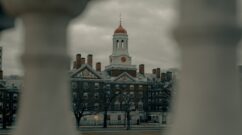Donors who seek reform should invest in established universities whose leaders are willing to take a stand for the liberal education.
Justifying the Liberal Arts
The raison d’être for government funding and subsidy of education is that, beyond return of education to the educated person, educated individuals also generate positive externalities and public goods for society more generally. Because individuals cannot capture the value of these benefits created by their education, individuals underinvest in their education relative to the social optimum. Government subsidy is one traditional means to overcome this underinvestment problem.
Talking about education as developing human capital or generating a signal usually focuses on the value to the person being educated. And, to be sure, students, and parents today, focus on future professions and vocations. Obsessively so. But individuals do not capture the full value of their education. There are spillovers. Both economic and non-economic; both measureable and not so easily measurable.
To say that spillovers exist, however, is not to say that, however valued, the value of the spillovers exceeds the cost of schooling. Or, perhaps better, that the benefit exceeds the cost at the current margin. The question has been rattling around ever since the start of public funding for colleges and universities; indeed, for government funding of primary and secondary school. Bryan Caplan’s book, The Case Against Education: Why the Education System is a Waste of Time and Money, provides a bracing challenge to those who would justify current levels of government funding of education and current forms of education.
The tone of defensiveness and denunciation greeting Caplan’s argument stems largely from fear. Fear about the implications of his argument for nature of education in American democracy. And fear for content of university education if his argument is true.
Caplan expresses high regard for the liberal arts in his book, but the logic of his argument forces us to consider uncomfortable thoughts about how we evaluate the worth of such learning. Value, however, whether to the individual or to society, is a particular problem for the liberal arts in today’s environment. Parents, faculty (even those teaching in the liberal arts) and administrators root its value in things like “critical thinking” and “communication.” And these are important, to be sure. But these are a thin reed to justify the significant scope of the liberal arts in the required curriculum of most universities.
I understand the pressures. Engineering faculty have complained to me (not that I was ever in a position to do anything) about liberal arts requirements. While some were just philistines (one faculty member opined to me that students should not need to study history in college because they took it in high school), others were more concerned with the opportunity cost. In an ever-more competitive world they feel the need to train their students to ever higher levels for the job market after graduation. Where to get the added time in a student’s degree plan? Substituting another engineering class that, arguably, increases the employability of the student relative to a required class in English, or history, or philosophy, is a tempting option.
And not just for faculty looking to increase their students’ employment prospects. Parents, too. Perhaps even parents, particularly. Years ago a parent came in with her son (and, yes, this was at a university, and way before anyone coined the phrase “helicopter parents”) to press me to raise her child’s grade one letter grade from a “C.” I answered all of her (standard) arguments about why a student’s need for a higher grade does not change the grade a student actually earns. Her last argument (perhaps more of a parting shot) was that I should raise his grade because “he won’t ever need the class in the future.” (This was a class in which we read all of The Federalist, all of the Lincoln-Douglas Debates, and an abridged version of Democracy in America.) I told her I was sympathetic, but the issue of whether there should be any required political science classes was an argument better directed to the university’s Board of Regents.
What is the utility of the liberal arts? Beyond process like critical thinking and communication, the value of studying the liberal arts are diffuse and not easily measured. (In today’s university measurement is king.) More significantly, though, the best argument for studying the liberal arts cannot be admitted.
Writing on the teaching of literary fiction, Flannery O’Connor observed, “It is the business of fiction to embody mystery through manners, and mystery is a great embarrassment to the modern mind.”
The embarrassment rests even at the root of political science. In asking “which constitution is best,” Aristotle recognizes one must first answer the question, “what type of life is most choice worthy.” This question is on deep background in almost every political science class, no matter how quantitative. To be sure, quantitative skills and “critical thinking” and knowing how things work in government and politics are important also. But the central itch — how then shall we live together? — is hardly ever openly asked.
Yes, at serious institutions, liberal arts students learn critical thinking and communication skills. These justifications for education work, sort of. But they’re second-order justifications; and they’re not unique to the liberal arts. Most faculty in the liberal arts (let alone university administrators) cannot admit the embarrassment of such an essential question as the central rationale for the liberal arts. Without it, however, the liberal arts fight for survival in today’s academy with one arm tied beyond its back.


